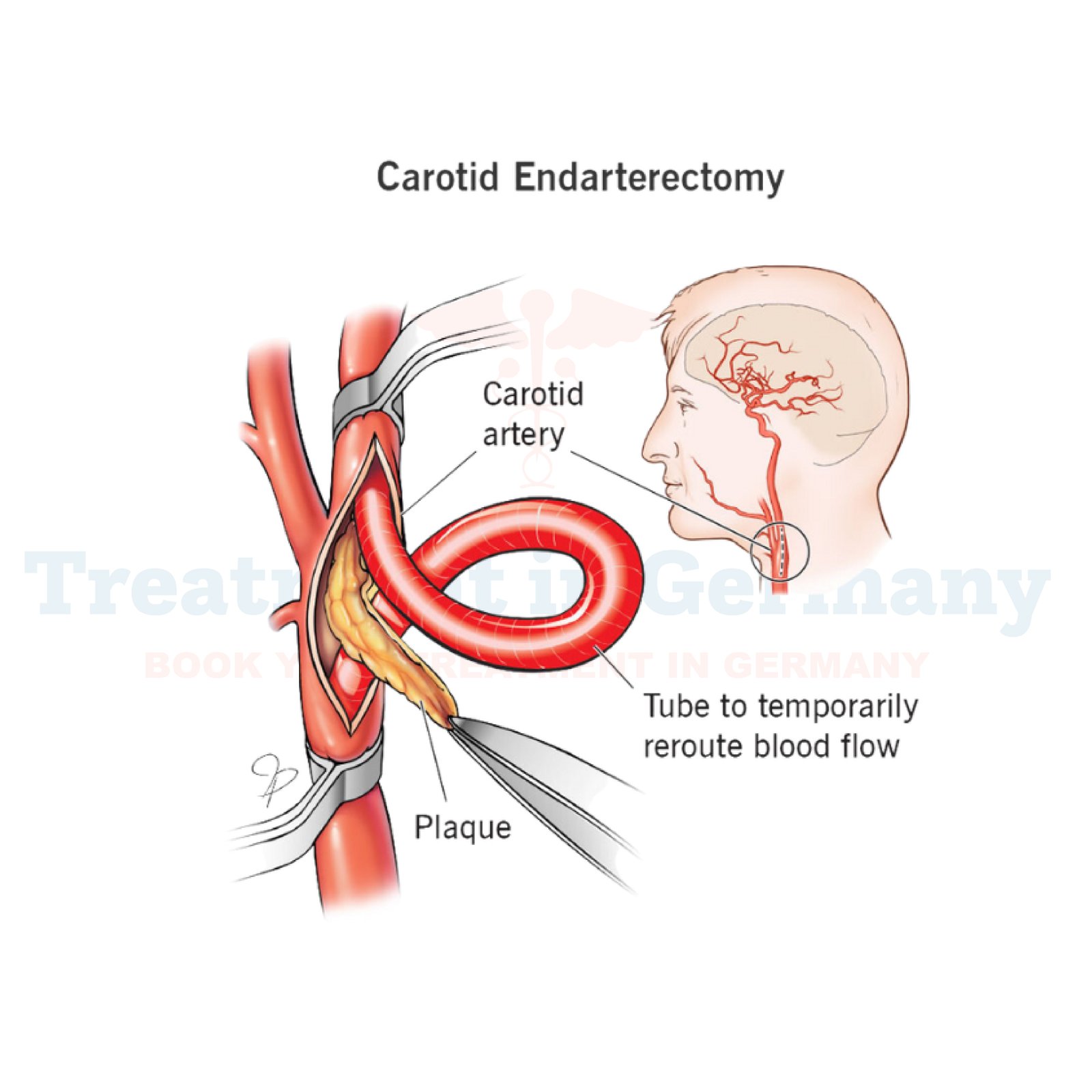Carotid endarterectomy is a significant surgery for the treatment of carotid artery disease so that a stroke may be avoided. The process includes the removal of all the plaque buildup on the carotid artery, which is a blood supply carrying blood into the brain. This treatment in Germany is free and characterized by excellent advanced healthcare along with high medical standards.
It is a surgical procedure intended for the treatment of carotid artery disease by removing plaques, which consist of fat and cholesterol buildup, inside the carotid arteries. These are the main arteries responsible for bringing blood supply to the head and face.
Narrowing of these arteries by a buildup of plaques might limit the flow of blood, which could endanger a person for a stroke. The procedure eradicates the plaque, thus allowing for proper blood flow. This minimizes the occurrence of a stroke, something placed high in German practice.
Who Should Undergo Surgery?
Carotid endarterectomy is indicated when there is significant stenosis of the carotid artery. Patients with considerable narrowing of the carotid artery should undergo surgery because they are susceptible to having a stroke or even a TIA.
Preoperative Evaluation and Diagnostic Testing in Germany
A series of diagnostic tests in Germany plus evaluation precede carotid endarterectomy. Tests aid in the determination of the severity of the occlusion and whether the procedure would be suitable for a patient, a process taken quite seriously in treatment given to patients in Germany.
Diagnostic Tests
About Procedure
A carotid endarterectomy is usually two hours in length and may be done under either local or general anesthesia.
Procedure in Germany
After Rehabilitation Care in Germany
Most patients are usually monitored overnight in the hospital to ensure that complications do not arise after the surgery. Sometimes, a temporary drain will be inserted into the surgical site to draw out fluid, thus ensuring proper treatment in Germany.
Recovery over Time
Patients generally regain normal activities within three to four weeks, and recovery depends on the health condition of the person. Maintenance monitoring is recommended for the carotid artery; lifestyle changes like improvement in diet, exercise, and cholesterol management are also required to prevent plaque reformation, one of the areas that need continuous treatment in Germany.
Risks and Complications
Carotid endarterectomy is generally safe, but like all other surgical procedures, this comes with its risks. Complications such as stroke or TIA include 5-7% of those patients who earlier had stroke or TIA and 2-3% of the asymptomatic population.
Advances in Procedures and Therapy in Germany
Germany is at the forefront of innovations in medicine and offers excellent techniques for carotid endarterectomy. Others include carotid angioplasty with stenting, which inflates a small balloon inside the artery and then places a stent to keep it open. Treatment in Germany would be helpful for some when surgery proves unsuitable.
Postoperative care involves lifestyle modifications and medication to prevent the accumulation of more plaque. In Germany, it has a significant impact on treatment.
Suggestions for A Change in Lifestyle
Follow-up Regularly
The patients are recommended to seek yearly check-ups to observe the status of the carotid artery, especially if they suffer from diabetes or other conditions related to the cardiovascular area so that they are treated correctly in Germany.
Symptoms of Carotid Artery Disease
The symptoms of carotid artery disease differ between patients.
They may consist of:
Chest pain
Frequently Asked Questions
What is endarterectomy of the carotid?
By surgically removing plaque accumulation from the carotid artery, carotid endarterectomy improves blood flow to the brain and lowers the risk of stroke.
For whom is a carotid endarterectomy appropriate?
The surgery may be recommended for patients with substantial coronary artery stenosis, particularly those who have had symptoms such as a stroke or TIA.
What dangers can carotid endarterectomy cause?
Stroke, heart attack, nerve injury, and infection are among the risks. The health status of the patient affects the chance of problems.
How much time does it take to recuperate from a carotid endarterectomy?
While complete healing may take several months, most patients can resume their regular
Does carotid endarterectomy have substitutes?
Indeed, stenting and carotid angioplasty are substitutes, particularly for patients who are not good candidates for surgery.
👉 Contact us for further information and receive a complimentary consultation.


.webp)
 (1).webp)

.webp)
 (1).webp)


.webp)
 (1).webp)

.webp)
 (1).webp)
